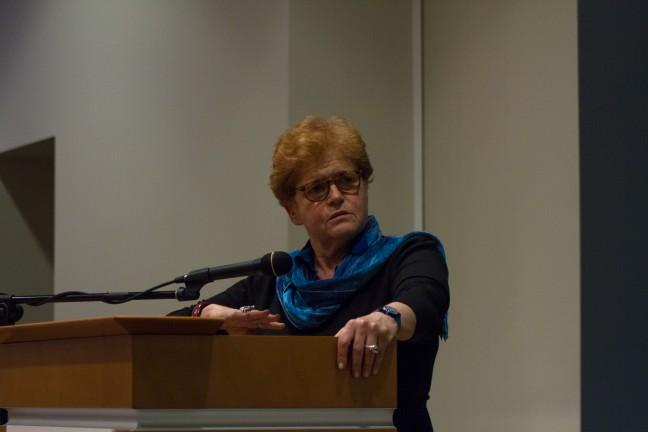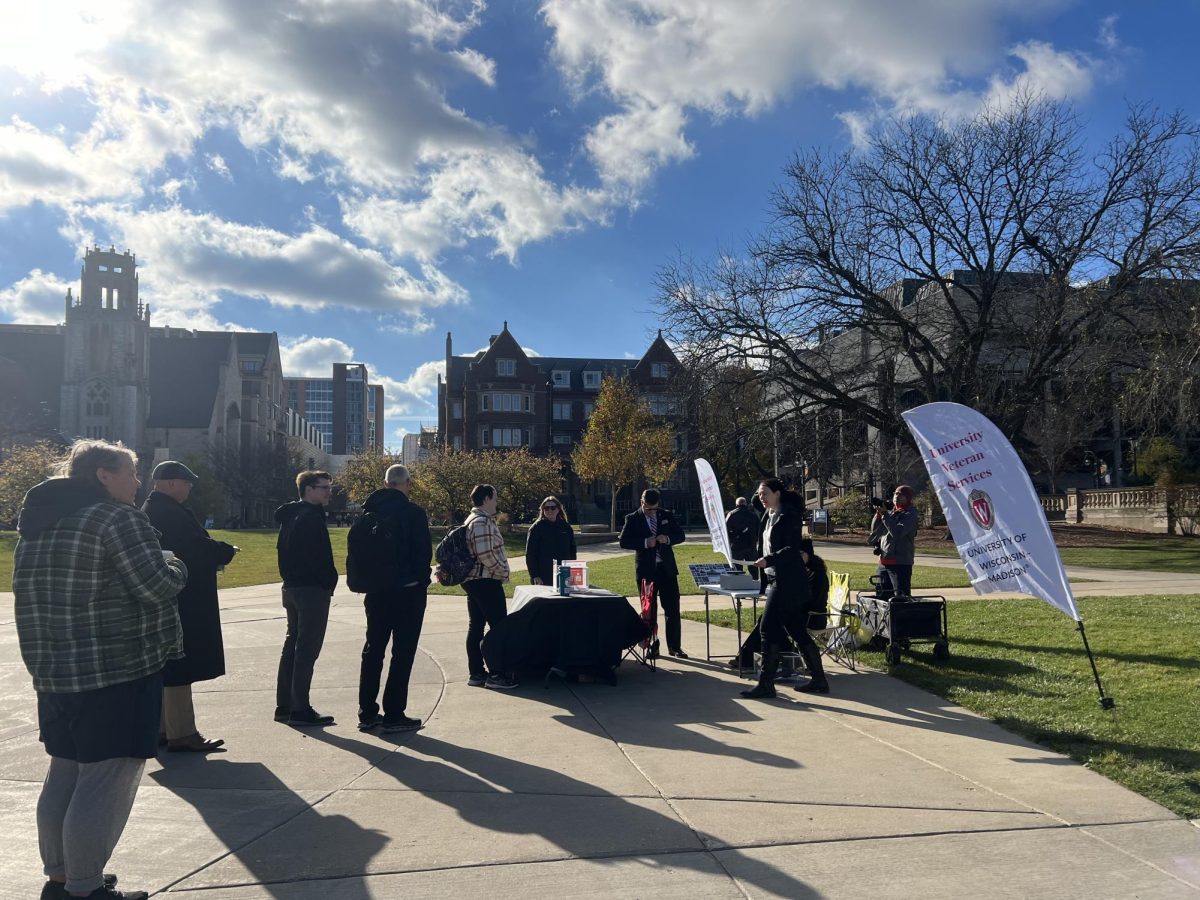Deborah Lipstadt, a Jewish studies professor at Emory University, spoke on the current state of anti-Semitism both in the United States and internationally at the University of Wisconsin Hillel Thursday.
Lipstadt said she believes anti-Semitism is a topic that is especially relevant today, even more so than it has been in the past several years.
“Up until recently a talk such as this would’ve been more theoretical- the roots of anti-Semitism, what is anti-Semitism,” Lipstadt said. “Today, and in the past couple months, it definitely feels much more real.”
Lipstadt said she is often approached by people who ask her whether today’s situation for Jews in Europe is similar to the situation in 1939, the brink of the Holocaust. They are not the same, she said.
Lipstadt addressed the recent attacks against Jews in Europe, asserting that the recent anti-Semitic attacks in Europe were committed primarily by Islamic extremists who hate Western democracies.
It was an attack on freedom of the press, freedom of speech and freedom of expression, Lipstadt said.
“If the cultural, social and political elites of Europe and this country think this is something against the Jews, they’re wrong,” Lipstadt said. “This is an attack on all the multi-cultural, multi-faceted liberal European society that has done many good things.”
While she acknowledged there have been some disturbing incidents, Lipstadt challenged the claim that U.S. college campuses are becoming an overall toxic environment for Jews.
The notion of the college campus as a “hotbed of anti-Semitism” is created by some people who feel it’s a good thing to get people riled up, Lipstadt said.
Lipstadt spoke about instances of anti-Semitism on two U.S. college campuses, Emory University and the University of California Los Angeles, pointing to the difference in how the administrators and communities handled the incidents.
The first incident occurred during the fall when a Jewish fraternity was vandalized by swastikas at Emory University. Immediately following the act of anti-Semitism, the president of Emory University sent a university-wide email condemning the action and many students across campus chose to wear blue as a sign of support.
“It was a sense we are showing solidarity with the AEPi house and opposition to this kind of intolerance on campus,” Lipstadt said.
Lipstadt said she praised the swift administrative response from Emory University and the support and solidarity that was shown the next day on campus.
Lipstadt also addressed what she believes is a disturbing response to an incident at UCLA where a Jewish young woman was hounded with anti-Semitic questions from members of UCLA’s student government for 40 minutes.
Unlike the response from Emory University, the way the UCLA incident was handled and received was upsetting to Lipstadt because it was not labeled as anti-Semitism by UCLA.
“To me this is probably one of the most disturbing anti-Semitic events we’ve seen on a campus in recent years that I’m aware of,” Lipstadt said.
Lipstadt concluded her talk on a positive note about maintaining Jewish culture in the face of anti-Semitism. She stressed the importance for Jews to enjoy and remain true to their culture despite the problems of hatred and intolerance they may face.
“Even as we fight the ‘oys’, we revel in the ‘joys,’” Lipstadt said.













